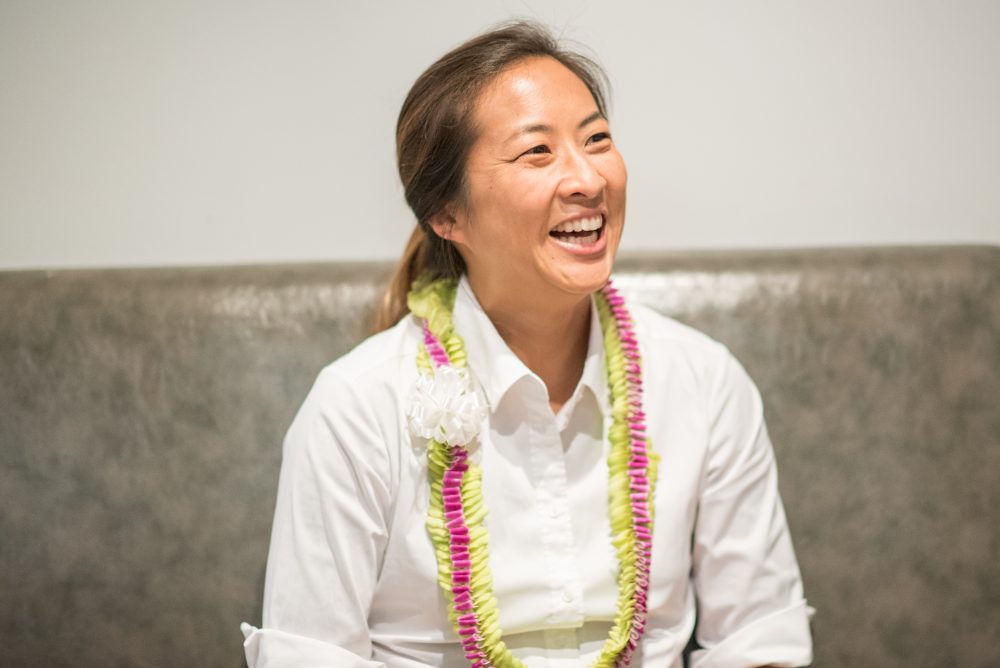
Photo by Joseph Esser.
Martha Cheng is a writer and editor based in Honolulu. Before taking part in a Zócalo/Daniel K. Inouye Institute “Pau Hana” discussion titled “Why Is the Mainland So Fascinated By Hawai‘i’s Food?” at Artistry Honolulu, she spoke in the green room about sweet potato rice porridge, East Coast surfing, and the next 100 years on planet Earth.
Do you have comfort foods?
Oh, of course! Almost anything from Taiwan, where my parents are from. So that could be soup, sweet potato rice porridge. Porridges are so comforting, and simple. You can just throw in whatever you have in the fridge.
What’s the best advice you’ve ever gotten?
I’m really bad at following advice!
What’s the best advice you’ve ever ignored?
Hmm …. Maybe just to listen to people.
What do you do to unwind?
I surf.
Did you take it up when you moved here?
More or less. The first time I ever did it was on the East Coast—I went to school in Boston. But I really got into it here.
Was there a teacher or a chef who really helped shape your career?
I think the first chefs I worked for when I came here were Lance Kosaka and Alan Wong in Honolulu at the Pineapple Room. They’re really interested in telling the story of Hawai‘i, the whole history of Hawai‘i, why we eat the food that we do. And as a newcomer—I came here 12 years ago from San Francisco—I really didn’t know much about it. So they really laid the foundation and gave me a deep appreciation for the culture here.
What’s your next career?
Maybe studying linguistics or psychology.
Don’t those also enter into working with food?
Well, I’m more of a writer these days, and I think through this I’ve learned how much I like writing about different cultures, different people. And about 10 years I picked writing about food as this entryway to get to know the community and the people better. But lately I think it’s language that’s starting to interest me, how that shapes our culture, shapes how we think. That’s really been fascinating me lately.
If you could time travel, where would you go?
I guess I’d go 100 years from now, because I’m really curious what’s going to happen to the world—culturally, environmentally, everything. And I guess it would definitely inform what I would do when I came back.



